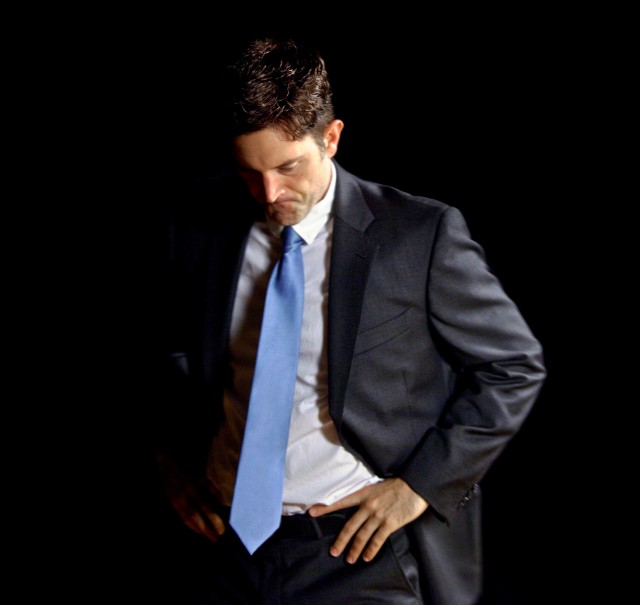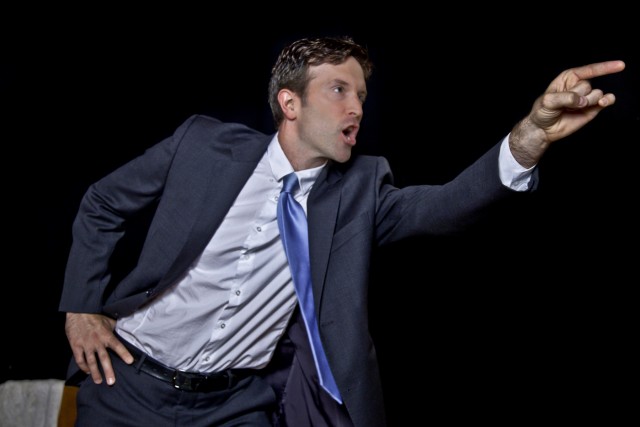
Coach (Paden Fallis) is exasperated by game and life in one-man show, THE PLAY ABOUT THE COACH (photo by Charlotte Jardat)
4th Street Theatre
83 East Fourth St. between Bowery & Second Ave.
Through March 17, $18
www.padenfallis.com
Just in time for March Madness, Paden Fallis’s one-man show, The Play About the Coach, has arrived in New York, running at the Fourth Street Theater through March 17. Directed by Tamara Fisch (Sons of the Prophet, On the Tenth Floor) and written by Fallis, the play takes place during the last two minutes and forty-seven seconds of an NCAA tournament quarterfinal match-up. Fallis is the coach of a team that is in the midst of blowing a fourteen-point second-half lead; he paces up and down the sideline, calling out to his players, conversing with the opposing coach, and engaging in an ongoing discussion with the ref, Joey, which at times turns existential. “Look, Joey,” he says calmly to the official. “Three minutes left in this game. That’s an eternity of time, okay? Remember your job: Deal with the facts or conditions as perceived without distortion of personal feelings, prejudices, or interpretations.” As his team’s lead whittles away, the coach removes various parts of his suit, downs cups of water like it’s whiskey, and compares the game to Shakespeare’s Timon of Athens.
Fallis does a terrific job of making the audience think they’re seeing the players, the crowd, the ref, and the heated action through his writing and his penetrating eyes. However, the play loses momentum — so critical at the end of a close contest — whenever the coach calls for time-outs that last much longer than they would in an actual game, and in scenes in which Gillian Wolpert’s lights dim and Gennaro Marletta’s sound lowers, giving the coach time to reflect on his life. Little details are troublesome as well, like when he throws crushed cups into the corner and slams his belt to the ground, items that inch onto the court, which would cause any ref to stop the game. In addition, the coach improbably keeps answering his cell-phone, getting calls from an unknown person — possibly his wife, upset about his total dedication to basketball instead of his family? — but no coach would ever do such a thing, especially during the final three minutes of a do-or-die game. “‘Live we how we can,’” he says. “Guys, look around. Look around you. They don’t understand. They will never understand you. They will ridicule you. They will inform you that there is no hope. They will leave you. You will ask for time and you will ask for space. You will say, ‘Three minutes, it’s only three minutes, things hang in the balance, give me three minutes.’” The Play About the Coach attempts to be about a lot more than just a coach or a game, but although it’s by no means an air ball, it’s also far from a slam dunk.
